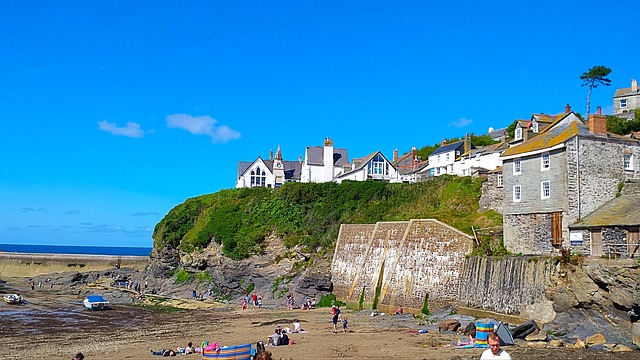clear
How might the UK tourism industry benefit from the UK triggering article 50?
clear

source:
Olly723 / Pixabay
Since the UK was set to leave the European Union, there has been a great amount of economic uncertainty in the UK. The pound has fluctuated dramatically and so family spending has been affected. Now that Article 50 has been triggered, we are no closer to knowing any terms associated with Brexit and so the pound is likely to keep rising and falling. The economic uncertainty puts a strain on everyday families living and working in the UK. With a weaker pound, holidays abroad will cost the average UK family a lot more money than normal. This means people are less willing to go abroad. The consequence of this, is more people will be taking their holidays in the UK - the so call "staycation". This is good news for areas like Devon, Cornwall and the Cotswolds because there will be a higher number of UK tourists visiting and spending money on hotels, food and boosting these local economies.
 1
1
clear
The threat of article 50 so far has had an effect on students - fewer students from Europe are choosing to come to England as they fear their funding being cut halfway through their course. So they prefer not to begin at all. It is the same for people coming to work here - they'd rather not if they think they might be turned away or kicked out of the country. This has a knock on effect of less of their friends and family coming to visit - so in this way it has affected tourism. It has also made Britain look uncertain, and people are not sure if visa applications etc will be affected so they look elsewhere for a holiday.
 0
0
clear
Given that the UK's triggering of Article 50 has signalled a prolonged period of uncertainty for the country, it is difficult to state where there will definitely be benefits for its tourist industry. Britain's relationship with Europe is set to change fundamentally, so exactly how this will affect tourism over the next couple of years, let along 5-10 years, is impossible to gauge.
In the immediate aftermath of Brexit, sterling took a hit. This prompted an influx of visitors from the USA and Japan, keen to take advantage of the weakened pound. In fact, four weeks on from the vote, visitors to the UK spent some £2.5 billion, representing a 4% rise on the equivalent figures from 2015.
But the longer-term impact on tourism will be much more prone to the fallout from the UK leaving the European single market. Aside from economic question marks, a report from the trade association UKinbound, which focuses exclusively on the in-bound tourist sector, reported a sharp rise in holiday cancellations from German, Polish and other East European travellers. The reason? Much as the politicians touting Brexit deny it, the UK's current direction of travel has prompted a 'Little England' mentality, with xenophobic sentiments being routinely expressed on social media, while recorded 'hate crimes' have soared. So there is no clear answer as to whether or not the 63% of in-bound tourists who used to come from EU countries will choose to go elsewhere. Other consideration, such as UK airlines losing access to the single aviation market, will do nothing to ease the doubt hanging over the travel industry. EasyJet blamed its financial downturn in 2016 directly on Brexit.
However, the traditional tourist draws - the beautiful countryside, West End theatres, Buckingham Palace and 1,001 other destination - will still attract visitors from all over the globe, regardless of the political situation.
 0
0
clear

Sign up to post or vote on answers.
Improveo will help systemize your knowledge.